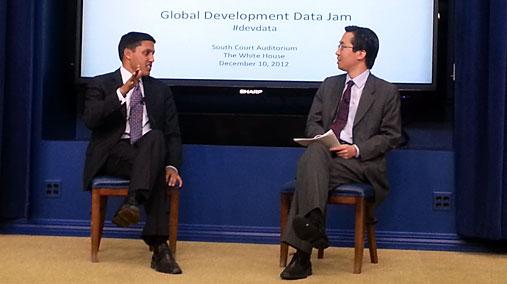USAID DataJam Notes from the Field

Todd Park at USAID DataJam December 10th, 2012 I was honored to participate in the Global Development Data Jam at the Eisenhower Executive Office Building at the White House. The group in attendance represented several NGOs, private sector organizations and federal agencies associated with USAID. The theme of this Data Jam was open data being used to enhance effectiveness in program spending and to create transparency in foreign spending by USAID. USAID DataJam Themes included: The future of the data economy driven by open data and big data Open data as infrastructure The correlation between lack of data access and poverty Open data as the next big economic multiplier Crowdsourcing data cleansing activities Open data is not usable data Social media for situational awareness and crisis management ( http://corp.geofeedia.com/ ). Speaker Notes Todd Park: U.S. Chief Technology Officer, The White House What is the next big thing? GPS was released in the early nineties which led to billion


